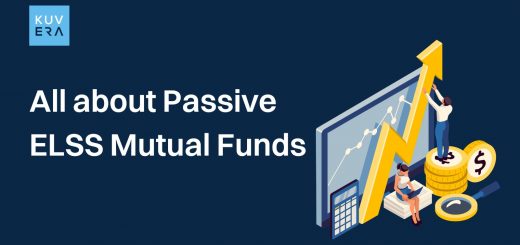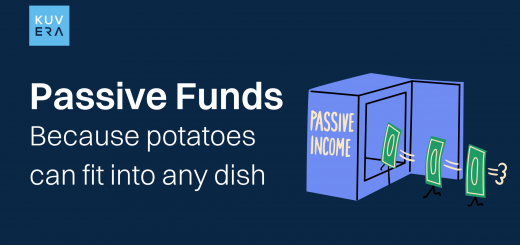What is Equity?
Equity is another term for ownership of a business. It does not exist in tangible form. A person’s equity funds directly implies the share of the company’s profits owed to that person.
What is equity share?
Equity is often referred to in percentages or shares, indicating that it is always a portion of the whole ownership of a company, business, start-up, or firm.
What is an equity funds?
An equity funds mainly constitutes equity securities with a small percentage of debt securities to cover the excess risk. Asset Management Companies can offer equity funds as mutual funds for the general public to invest in. Equity funds contain marketable securities of stocks with high volatility in anticipation of greater returns. Therefore, they come attached with greater risk.
Types of Equity
There are several types of equity for every company.
-
Common Shares
Common shares are the shares of a company traded commonly in public markets. Anyone with equity capital can buy them and get voting rights. This form of investment is used to meet expenses by the company.
-
Preference Shares
Preference shares have a separate segment and are preferred over common shares because of the dividends. They lack voting rights.
-
Bonus shares
These common shares are not bought, but granted by the company in the form of bonuses to its employees or shareholders on certain occasions from its profits.
-
Rights shares
Rights shares are not available for everyone to purchase. The company allows only a few high-value investors to buy them at a discount from the market value. Consequently, a single investor buys these shares in significant quantities, increasing their equity stake. These types of shares are given out to meet liabilities requirements by the company.
-
Employee Stock Options (ESOPs)
ESOPs can be claimed by only an employee of a company after a fixed period and a discounted rate. The total discount offered on these shares as an option to redeem is added to the cost of the company segment of an employee’s salary.
Features of Equity
- Permanent ownership: Once bought, equity shares give complete permanent ownership to the investor until they sell their investment.
- Greater returns: Equity shares provide greater returns than other investment alternatives in the long run, like debt mutual funds, bonds, and government securities.
- Dividends: Dividends are given out by the company as the excess profits after considering reinvestment. Equity share ownership entitles each investor to dividend earning.
- Voting rights: Each equity share owner is eligible to cast their voting rights in each decision-making process for the company’s functioning.
- Liquidity: Equity shares offer excellent liquidity and allow the investor to take out their investment quickly.
- Limited Liability: An equity shareholder is not obligated to pay the debts owed by the company. However, they do enjoy partial benefits of ownership of the company.
What Are Capital Gains and Dividends?
Capital gains are profits earned by an investor through an increase in the valuation of a security over time. This is the most natural way of earning profits for equity traders and investors as their efforts directly drive them. They are earned when investors realize their gain and are subject to taxation owing to their potential for making huge profits.
Capital gains are of two types:
- Long-term Capital Gains: Long-term capital gains are earned by an investor when the increase in the valuation of securities has occurred over a large period or over one year. These are unrealised gains accumulated over the years. They are taxed more heavily.
- Short-term Capital Gains: These are gains earned by an investor when the increase in securities valuation and the realisation of that profit has occurred within one year. Short-term capital gains are taxed less than long-term ones.
On the other hand, dividends are a regular source of income for shareholders in a company. These are shed out of the company’s net profits from each financial year and are disbursed when financial reports are released. Every common shareholder is automatically entitled to dividends.
Advantages of Equity Shares
The benefits of equity shares over mutual funds or debentures are numerous.
- Equity shares hold the potential to reap greater returns.
- Equity shares give the investor partial ownership over the company. It comes with several benefits varying from the company or the type of equity shares owned.
- Equity shares also have the provision of dividend income, a stable periodic return for an investor.
- Equity shares provide the investor with the voting rights to exercise their will and choice during crucial decision-making in the company.
- Equity shares tend to go through a stock split or buyback. Both of these activities by the company favour the investors in the long run.
- Equity shares are the most liquid form of investment possible. An investor can withdraw their investment almost instantly if they wish to do so.
Who Should Consider Investing in Equities?
Equity investment requires a lot of background research work. Fundamental analysis of the equity stock helps investors make decisions for long-term investing. A critical parameter is the debt-to-equity ratio, which is the ratio of the total debt owed by the company to its total shareholder’s equity. D/E ratio allows the investors to understand the leverage taken by the company. A higher ratio is a negative signal for the equity stock.
Equity investments reap significant returns in the long run, but the journey is never smooth. Needless to say, the sole parameter to consider before investing in equity is the risk appetite, which is high in people of relatively younger age. They do not get overwhelmed by short-term sharp moves in the market, and their stable source of income sails them through when the investment takes a hit. At the same time, the older market players prefer not to go through the rough ride and enjoy the smooth, little returns of low-risk investment alternatives. High returns and the turmoil of risk attached to equity trading may not excite them.
Interested in how we think about the markets?
Read more: Zen And The Art Of Investing
Check out all our “Investor Education Originals” videos on Youtube and get smart about investing.
Start investing through a platform that brings goal planning and investing to your fingertips. Visit Kuvera.in to discover Direct Plans and Fixed Deposits and start investing today.
#MutualFundSahiHai #KuveraSabseSahiHai!











